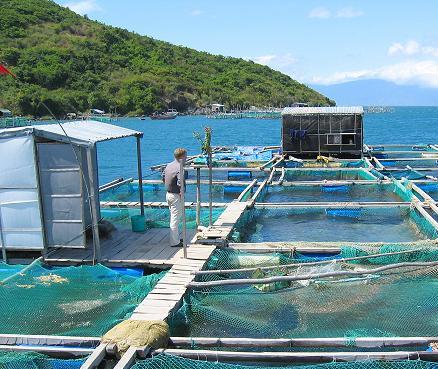ERC completed new research on the aquaculture sector of Azerbaijan
The Economic Research Center (ERC) along with the Azerbaijan Agribusiness Center (AAC) completed a project explaining the situation in the aquaculture sector of Azerbaijan. The research started in April 2011 and was financed by USAID through hits Azerbaijan Competitiveness and Trade (ACT) Project. The study’s main objectives were to evaluate the competitiveness, profitability, feasibility, importance, and trends and constraints in the aquaculture sector inAzerbaijan. The project was implemented in three primary phases.The first phase included a series of workshops for the responsible staff on the Domestic Resource Cost (DRC) methodology which was the main tool used for the analysis.
The second phase included gathering data about the sector from official sources, previous work completed on the sector and actual data collection through asurvey. In this phase the project team sent requests for different data to relevant organizations. Apart from that, the main source of the data for the analysis was the specialized surveys conducted in the Salyan-Neftchala and Sheki-Zagatala regions of the country of carp and trout aquaculture businesses, including hatcheries, farmers and traders.
The last phase was primarily concerned with analyzing the sector using the abovementioned DRC methodology. The primary conclusions of the research can be summarized in the followingkey points:
• Although financially profitable, from an economic point of view, the sector, especially the carp industry, does not seem to exhibit high levels of competitiveness, if any, and therefore would not be able to compete in international markets. However, the sector has the potential for import substitution if managed and marketed properly.
• There are a number of constraints, both technical and related to government policies, which result in poor output for the sector, both in terms of volume and quality.
• The monopoly situation in Azerbaijan’s fish industry needs to be understood and options for ensuring greater competition into the industry need to be explored by the Government.
• The Government could take steps to facilitate the importation of quality fish feed and ingredients, as well as other inputs for the aquaculture industry which could lead to a better outcome for the whole industry.
• The DRC results for trout production suggest that there are substantial profits to be made through greater investments to increase feed efficiency and better manage existing fixed resources.
• There is a need to explore possibilities for small-scale fish processing.
• It is urgent that the instruction issued by the Cabinet of Ministers in May 2011 regarding the use of land for aquaculture be reconsidered. If the Law of 1998 is to be implemented, then the process of registering land for aquaculture should be streamlined and the cost should be minimized.
• Options for reducing the cost of transport and for prolonging the period over which fish can be marketed through refrigeration and processing should be explored.
For further information, please contact Mr. Vahid Maharramov, Project Team Member at (99412) 4651841.
